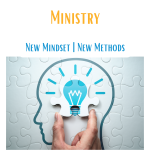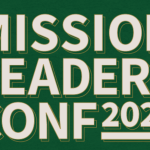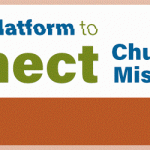 If you ever had suspected that turning the corner past the year 2000 might bring about a diminishing interest in unreached peoples on the part of churches and church leaders, I would have to suggest that you missed the mark. In the world in which I’m living, churches (especially megachurches) are more active and eager than ever to embrace and complete the task of telling the whole world about Jesus. Yes, the mode is in flux (and perhaps even a bit of the message?), but the willingness, in my limited experience, is still strong.
If you ever had suspected that turning the corner past the year 2000 might bring about a diminishing interest in unreached peoples on the part of churches and church leaders, I would have to suggest that you missed the mark. In the world in which I’m living, churches (especially megachurches) are more active and eager than ever to embrace and complete the task of telling the whole world about Jesus. Yes, the mode is in flux (and perhaps even a bit of the message?), but the willingness, in my limited experience, is still strong.
What does this mean? It might mean that — if we lead a mission team or an organization, we might be forced to re-think our relevance and our “modus operandi” (“M.O.”), but nevertheless, it appears that the need, the opportunity, and the partnerships are still there to be had. The question is — can we become creative enough to retool our “modalities and sodalities.”
What’s your own experience? What modalities and sodalities are you having to rebuild? How do you see the future shaking out when it comes to transforming trends in sending teams to reach unreached peoples? Please take a moment to summarize your input by clicking on “Comment” below. Feel free to do so anonymously if that’s preferable.












Three thoughts about unreached people groups and new sodalities/modalities needed to get the job done:
–Broaden thinking about what is an unreached people group. Rigid (and debatable) definitions don’t work. Note the discussions on what group has the “real” list of unreached people. The urban poor may be an unreached people group. IT workers in India may be an unreached people group. Let’s open our eyes to the possibiities.
–The law of the harvest must play a key role in our thinking. We need to be attentive to where the Holy Spirit is working and get in line with what he is doing. If God is starting a movement who are we to decide we don’t want to work in this place because it doesn’t fit our narrow definition of what an unreached people group is.
–Any strategy today that is not holistic in its outreach misses the boat. Care for orphans and widows and the poor and oppressed must be taken into account with any strategy.
We must also hold loosely to our strategies. We are human and fallible and must be open the the Lord’s leading and direction even when it might not always match our favorite “modus operandi”.
Two quick thoughts: The majority of unreached peoples are oral cultures therefore a storying component should be added to mission trips and I highly recommend the International Orality Network. 2nd: Get ‘When Helping Hurts” as a part of the training for short term teams. And a quote from Dawson Trotman that Ralph Winter used liberally: “Never do anything that others can do and will do, when there are things that need to be done that others either can’t do or won’t do. Apply that to our mission trips as well.
I am finding that more and more American churches want to be in effective relationships directly with indigenous ministries in the hard places. However, they often don’t have a good intuition and other resources about how to do that well. What can/could be done to help these churches?